7 Words You Might Be Saying Wrong
These of-the-moment words (see especially slide 2) are often mispronounced. The authors of You're Saying It Wrong are here to help.
By Ross Petras and Kathryn Petras
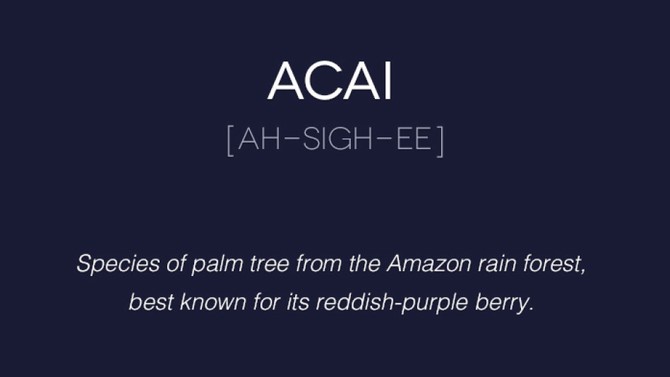
Illustration: Florie Duhau
acai
It's not "ACK-ah-ee", it's not "ah-KAI," and it's not "ah-SIGH." It's "ah-sigh-EE," with a soft c and a stress on the last syllable.
For the spelling that tricks many English speakers, you can blame the early Portuguese explorers of Brazil, who saw indigenous rainforest people eating a strange and luscious palm tree berry that they called in their Tupi-Guarani language ïwaca'i (something that cries or expels water).
The Portuguese wrote this down as açaí, but in Portuguese the c comes with a squiggly cedilla at the bottom that makes the c sound soft, and there's an accent on the i. The result is something very close to the original pronunciation. Since English doesn't come equipped with softening cedillas and accents, the result is a very untasteful rendering of a very tasty fruit.
For the spelling that tricks many English speakers, you can blame the early Portuguese explorers of Brazil, who saw indigenous rainforest people eating a strange and luscious palm tree berry that they called in their Tupi-Guarani language ïwaca'i (something that cries or expels water).
The Portuguese wrote this down as açaí, but in Portuguese the c comes with a squiggly cedilla at the bottom that makes the c sound soft, and there's an accent on the i. The result is something very close to the original pronunciation. Since English doesn't come equipped with softening cedillas and accents, the result is a very untasteful rendering of a very tasty fruit.
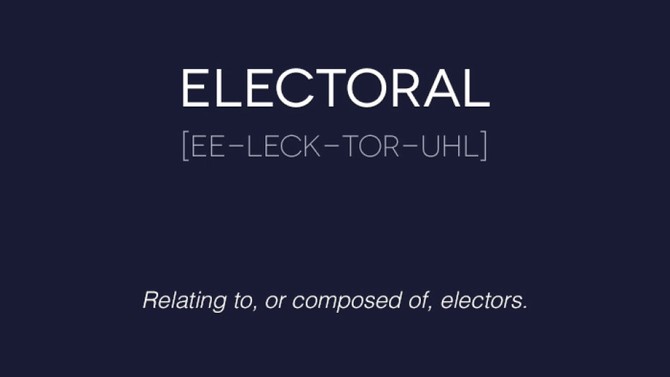
Illustration: Florie Duhau
electoral
Numerous websites and dictionaries put "electoral" among the top 100 most mispronounced words in the English language. For the record, the accent is on the second syllable, not the third, so it's "ee-LECK-tor-uhl," not "ee-leck-TOR-uhl," and most definitely not "ee-leck-TOR-ee-uhl," which we've also heard.
Having said that, it's time for a caveat. Merriam-Webster's Collegiate Dictionary (11th edition), which tends to have a more liberal, go-with-the-flow attitude toward language than most other dictionaries, now accepts that second pronunciation and even adds a third "ih-LECK-trul" pronunciation.
Having said that, it's time for a caveat. Merriam-Webster's Collegiate Dictionary (11th edition), which tends to have a more liberal, go-with-the-flow attitude toward language than most other dictionaries, now accepts that second pronunciation and even adds a third "ih-LECK-trul" pronunciation.

Illustration: Florie Duhau
daylight saving time
Do you say "daylight saving time" or "daylight savings time"? Many of us (we plead guilty) carelessly use the plural "savings," including the writer of a quite recent Huffington Post article, with the headline "Daylight Savings Time Starts March 8." Wrong.
It's "daylight saving time." It's an easy mistake to make, probably because of the associations with common terms like "savings bank" and "savings account." The British have a better idea. Often, instead of calling it "daylight saving time," a rather unwieldy phrase, they call it "summer time," which not only is a perfect opposite to "standard time" (non–daylight saving time) but also sounds so evocative.
It's "daylight saving time." It's an easy mistake to make, probably because of the associations with common terms like "savings bank" and "savings account." The British have a better idea. Often, instead of calling it "daylight saving time," a rather unwieldy phrase, they call it "summer time," which not only is a perfect opposite to "standard time" (non–daylight saving time) but also sounds so evocative.
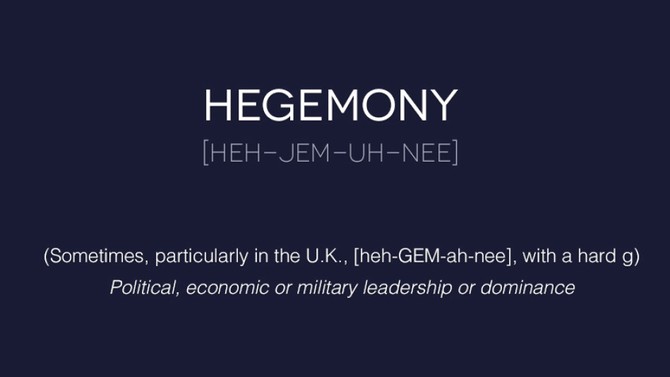
Illustration: Florie Duhau
hegemony
This is a word that crops up very often in "smart" articles about world affairs and the like. As a result, some of those smart people talk about "HEDGE-eh-moan-ee," which is not the preferred pronunciation.
The funny thing is enough people mispronounce it this way that many people think it’'s wrong when pronounced correctly. As with a number of other shibboleth words, the nonpreferred pronunciation has begun appearing in dictionaries as a second way to say the word.
The funny thing is enough people mispronounce it this way that many people think it’'s wrong when pronounced correctly. As with a number of other shibboleth words, the nonpreferred pronunciation has begun appearing in dictionaries as a second way to say the word.

Illustration: Florie Duhau
chaise longue
Yes, as you can see above, it is not "chaise lounge." But if you thought it was, you're far from alone. Typing "chaise lounge" into Google proves this. The incorrect term occurred more than 1 million times.
It is clearly an easy mistake to make, and it has been made since the word emerged in the early 1800s. But the French word chaise longue means, literally, "long chair," not "lounge chair." The piece of furniture itself has been around for centuries, first made in ancient Egypt by lashing palm sticks together with rawhide. So the furniture has a long (longue?) history.
It is clearly an easy mistake to make, and it has been made since the word emerged in the early 1800s. But the French word chaise longue means, literally, "long chair," not "lounge chair." The piece of furniture itself has been around for centuries, first made in ancient Egypt by lashing palm sticks together with rawhide. So the furniture has a long (longue?) history.
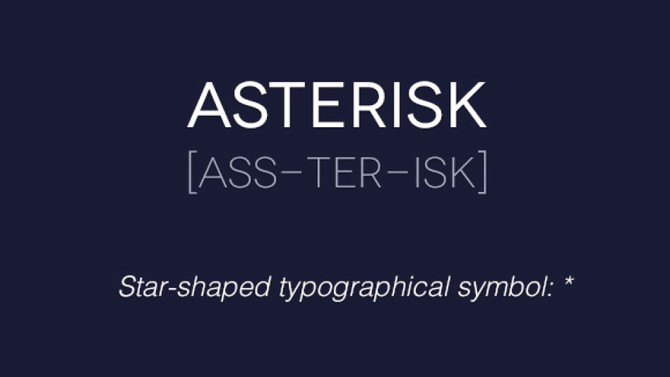
Illustration: Florie Duhau
asterisk
People have been mispronouncing "asterisk" since the word entered the English language from Late Latin (asteriscus from the ancient Greek asteriskos, meaning "little star.")
The problem here is switching the correct "sk" ending with a "ks" ending. (Some people take it a step further and drop the s.) If you do it or have done it, you are not alone. People have been switching letters and sounds in English (and other languages) since language began. It is called metathesis—the rearranging of sounds in a word.
The problem here is switching the correct "sk" ending with a "ks" ending. (Some people take it a step further and drop the s.) If you do it or have done it, you are not alone. People have been switching letters and sounds in English (and other languages) since language began. It is called metathesis—the rearranging of sounds in a word.

Illustration: Florie Duhau
phở
Yes!, It's pronounced "fuh"—a slightly rolling "uh" sound, as in "fur" without the r, or almost exactly like the French word for fire, feu. And sure enough, the French feu is usually considered to be the origin of the word. Many linguists trace the beginnings of "phở" back to Hanoi of the 1860s under French colonial rule, and perhaps to pot-au-feu ("pot on the fire"), the name for a classic Burgundian beef stew made with vegetables.
Before then, the Vietnamese rarely ate beef, but with the French, it became a major food item (although phở can also be made with chicken, called phở ga). The Vietnamese added noodles to the "pot" and then chopped off the "pot-au" from the classic French dish's name, and thus, a new all-Vietnamese classic was created. But others (particularly in China) trace the origins of "phở" to the beef-eating Chinese, with a Chinese word for noodles, fen, transmogrifying to "fuh" in Vietnamese. Whatever the origins, at least everyone agrees on one thing: It's not pronounced "fo."
Before then, the Vietnamese rarely ate beef, but with the French, it became a major food item (although phở can also be made with chicken, called phở ga). The Vietnamese added noodles to the "pot" and then chopped off the "pot-au" from the classic French dish's name, and thus, a new all-Vietnamese classic was created. But others (particularly in China) trace the origins of "phở" to the beef-eating Chinese, with a Chinese word for noodles, fen, transmogrifying to "fuh" in Vietnamese. Whatever the origins, at least everyone agrees on one thing: It's not pronounced "fo."
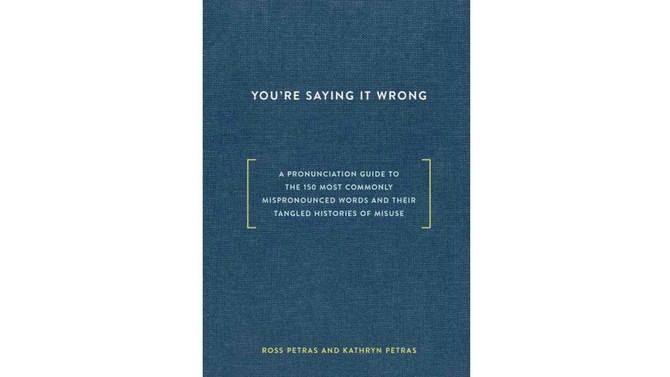
This adapted excerpt comes from You're Saying It Wrong, by Ross Petras and Kathryn Petras. Copyright © 2016. Published by Ten Speed Press, an imprint of Penguin Random House LLC.
Published 10/28/2016

